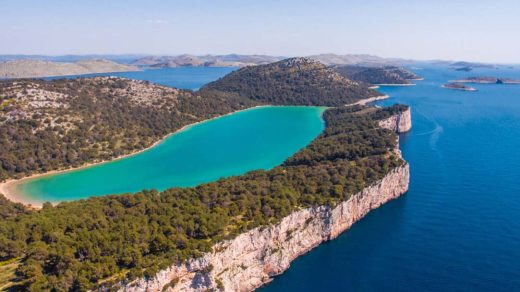Marseille, a vibrant port city in southern France, is a place of stunning coastal beauty, rich history, and diverse culture. Known as the gateway to the Mediterranean, it offers a plethora of experiences for travelers. However, exploring such an exciting destination on a limited budget requires careful planning and smart choices. I will share my personal experiences and tips on how to enjoy Marseille without breaking the bank.
Travel Essentials for Marseille
Packing List
When preparing for a trip to Marseille, it’s essential to pack wisely. Here are some must-have items:
- Comfortable Walking Shoes: Marseille is best explored on foot, especially the old port and the historic Le Panier district.
- Light Clothing: The weather is typically warm, so pack light and breathable clothes.
- Sun Protection: Bring sunglasses, a hat, and sunscreen to protect yourself from the Mediterranean sun.
- Reusable Water Bottle: Staying hydrated is important, especially when exploring in the heat.
- Travel Guide and Map: A physical map can be handy, even in the age of smartphones.
- Portable Charger: Ensure your phone stays charged for maps, photos, and emergency use.
- French Phrasebook: While many people speak English, knowing some basic French phrases can be helpful.
Weather and Clothing
Marseille enjoys a Mediterranean climate with mild winters and hot, dry summers. Here’s a seasonal guide to help you pack:
- Spring (March to May): Temperatures range from 12°C to 20°C (54°F to 68°F). Light jackets and layers are recommended.
- Summer (June to August): Expect hot weather with temperatures from 20°C to 30°C (68°F to 86°F). Light clothing, hats, and sunglasses are essential.
- Autumn (September to November): Temperatures range from 14°C to 24°C (57°F to 75°F). Pack layers and a light jacket.
- Winter (December to February): Mild with temperatures from 5°C to 14°C (41°F to 57°F). Bring warmer clothing and a coat.
Understanding Local Culture
Cultural Norms
Marseille is a culturally diverse city with a mix of French and Mediterranean influences. Here are some cultural norms to keep in mind:
- Greetings: A polite “Bonjour” (good day) when entering shops or restaurants is appreciated.
- Dining Etiquette: The French take their meals seriously. It’s customary to say “Bon appétit” before eating.
- Tipping: Service is included in the bill, but it’s customary to leave a small tip for good service.
- Dress Code: Casual but stylish attire is common. Avoid overly casual clothes like flip-flops and beachwear in the city.
Currency and Budgeting
France uses the Euro (€). Here are some tips for managing your money in Marseille:
- Currency Exchange: Exchange some currency before your trip. ATMs are widely available, but using a travel card can save on fees.
- Budgeting: Plan a daily budget. For budget travelers, €50-€70 per day should cover accommodation, food, and local transport.
- Cash and Cards: Carry some cash for small purchases. Credit and debit cards are widely accepted.
Navigating Marseille on a Budget
Public Transportation
Marseille has an efficient public transportation system, including buses, trams, and a metro. Here’s how to use it effectively:
Metro System
Marseille’s metro system has two lines:
- Line 1 (Blue Line): Runs from La Rose to La Fourragère.
- Line 2 (Red Line): Runs from Bougainville to Sainte-Marguerite Dromel.
Tickets and Passes
- Single Ticket: Costs €1.70 and is valid for one hour across all modes of transport.
- 24-Hour Pass: Costs €5.20 and offers unlimited travel for 24 hours.
- 72-Hour Pass: Costs €10.80 for three days of unlimited travel.
- 7-Day Pass: Costs €14.70 for a week of unlimited travel.
Tickets can be purchased at metro stations, newsstands, and via the RTM (Régie des Transports Métropolitains) app.
Getting a Metro Card
For longer stays, consider the RTM Card:
- Cost: €2 for the card plus the cost of the pass.
- Where to Buy: Available at RTM offices and some metro stations.
- Benefits: Reloadable and convenient for frequent travelers.
Comparing Public Transport
Compared to taxis and rental cars, public transport is significantly cheaper and more environmentally friendly. While taxis can be convenient, they are much more expensive, with fares starting at €2 and increasing by €1.75 per kilometer. Rental cars offer flexibility but come with high costs for fuel and parking.

Affordable Local Eats
Popular Street Foods
Marseille is known for its delicious and affordable street food. Here are some must-try options:
- Panisse: Fried chickpea flour cakes, crispy on the outside and soft inside. Usually costs around €3-€5 for a portion.
- Socca: A thin, crispy chickpea pancake. A portion costs about €3-€4.
- Navettes: Traditional boat-shaped biscuits flavored with orange blossom. Prices range from €1-€2 each.
- Chichis Frégis: Marseille’s version of churros, served with sugar. Typically costs around €2-€4.
Food Safety Tips
- Choose Busy Stalls: High turnover ensures fresh food.
- Check Cleanliness: Ensure the vendor follows good hygiene practices.
- Stay Hydrated: Always carry water to stay hydrated, especially when eating salty or spicy street food.
Getting a Local SIM Card
Staying connected is essential, and getting a local SIM card is a cost-effective way to ensure you have mobile data and call access.
Where to Buy
- Mobile Stores: Orange, SFR, and Bouygues have stores across Marseille.
- Supermarkets: Large supermarkets like Carrefour and Auchan sell SIM cards.
- Airport Kiosks: More expensive but convenient upon arrival.
Costs and Plans
- Prepaid SIM Card: Prices start from €10, often including some initial credit.
- Data Plans: Typically €20-€30 for a plan with 10-20GB of data, plus unlimited calls and texts within France.
Activation
- ID Requirement: You will need a valid ID to purchase and activate a SIM card.
- Activation Process: Follow the instructions provided by the retailer. This often involves calling a number or visiting a website.
Planning a 5-Day Budget Itinerary
Here’s a suggested itinerary to help you make the most of your time in Marseille on a limited budget:
Day 1: Arrival and Old Port
- Arrival: Check into a budget-friendly hotel or hostel.
- Old Port: Explore the Vieux-Port, enjoy the waterfront views, and visit the fish market.
- Le Panier District: Wander through Marseille’s oldest neighborhood with its narrow streets and colorful houses.
Day 2: Cultural Exploration
- MuCEM: Visit the Museum of European and Mediterranean Civilisations (€9.50 entry fee).
- Fort Saint-Jean: Adjacent to MuCEM and free to explore.
- Lunch: Try a Panisse or Socca from a street vendor.
- Cathedral de la Major: Visit this stunning cathedral nearby.
Day 3: Nature and Views
- Notre-Dame de la Garde: Take a bus (€1.70) to the basilica for panoramic views of the city.
- Corniche Kennedy: Stroll along the scenic coastal road.
- Beach Time: Relax at Plage des Catalans, a free public beach.
Day 4: Day Trip to Cassis
- Transportation: Take a bus or train to Cassis (around €5-€10 each way).
- Explore Cassis: Visit the picturesque port and enjoy a boat trip to the Calanques (€20-€30).
- Return to Marseille: Spend the evening at a local café.
Day 5: Markets and Museums
- Noailles Market: Experience a bustling local market.
- Palais Longchamp: Visit this historic palace and its gardens (free entry to the gardens).
- Lunch: Enjoy Chichis Frégis as a snack.
- Afternoon: Explore more museums like the Natural History Museum (entry fees vary).
Adjusting Your Budget
Here are some additional tips to keep your budget in check:
- Accommodation: Consider hostels or budget hotels. Airbnb can also offer affordable options.
- Eating Out: Limit dining at expensive restaurants. Opt for street food and bakeries.
- Transport: Use public transport and consider walking or cycling.
- Attractions: Look for free or discounted entry days at museums and landmarks.
Recommended Day Trips
- Aix-en-Provence: A charming town known for its fountains and markets. Easily accessible by bus or train (€10-€15 each way).
- Arles: Famous for its Roman monuments and Van Gogh heritage. Train fares range from €15-€20.
- Avignon: Explore the historic city with its Palais des Papes. Train fares around €20-€25.
- Calanques National Park: Ideal for hiking and enjoying the natural beauty. Accessible by bus or boat (€5-€30).
Travel Insurance Recommendations

Having travel insurance is crucial for peace of mind. I recommend Allianz Travel Insurance for comprehensive coverage.
Allianz Travel Insurance
Plan: OneTrip Premier Plan
Coverage:
- Medical Expenses: Up to $50,000
- Trip Cancellation: Up to $5,000
- Baggage Loss/Damage: Up to $1,000
- Emergency Evacuation: Up to $500,000
Cost: Approximately $100 for a week-long trip.
Why Allianz:
- 24/7 Assistance: Round-the-clock support for emergencies.
- Comprehensive Coverage: Includes medical, trip interruption, and baggage.
- Easy Claims Process: Hassle-free and efficient.
Personal Experience
During a previous trip to Marseille, I had a minor medical issue that required attention. Having Allianz Travel Insurance provided peace of mind, knowing that I was covered for any unexpected expenses. The claims process was straightforward, and I received reimbursement quickly.
Exploring Marseille on a budget is entirely possible with some careful planning and smart choices. From affordable accommodation and local street food to efficient public transport and cost-effective day trips, you can enjoy all that this vibrant city has to offer without spending a fortune. Remember to pack wisely, respect local customs, and stay connected with a local SIM card. Whether you’re wandering through historic districts, relaxing on the beach, or immersing yourself in the local culture, Marseille promises an unforgettable experience. Safe travels!



